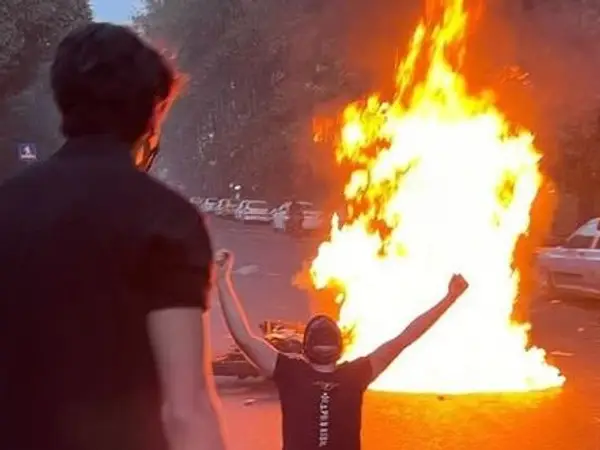Iranian academic Hadi Khaniki says the current wave of protests in Iran may have originated from the younger generation's feeling of being marginalized.
What the academic is referring to is the dual lack of social freedoms and economic opportunity in a country rich with natural resources but hampered by religious ideology and an inefficient, centralized economy.
Khaniki told Etemad Online in Tehran that he still does not know any way out of the crisis other than holding dialogues. His statement is obviously mindless of the fact that it takes two to tango and that there will be no dialogue while the regime remains unaccountable and exhibits signs of arrogance.
Khaniki said that during recent years the Iranian society has become more pluralistic, but the government continues to believe in controlling and restricting the society's lifestyle and political choices.
He said Iran's new generation is fighting the government to put an end to discriminations against young Iranians. Although networking and voicing demands through social networks exist in all societies, the Iranian government behaves badly by ignoring the young generation’s demands, in an environment where most social, economic and political activities is controlled by the state.
Meanwhile, Khaniki pointed out that the continuation of the discriminatory distribution of privileges in the interest of the older generation has escalated the protests in Iran. He added that the Iranian government ignores the fact that responding to demands is part of its responsibilities.
As the protests in Iran entered its third month, another Iranian reformist commentator, Mohammad Reza Tajik suggested in a commentary published by Etemad newspaper that government officials should avoid making annoying comments that will further enrage young protesters.
Tajik characterized Iranian officials' rhetoric as outdated and rotten, and their tone as aggressive, violent and rude. "They say no to all the criticisms and demands for change. But this is a language that cannot go any further, hinders communication and remains futile," he said.
Such a rigid rhetoric, said Tajik, puts an end to human bonds and particularly alienates the younger generation. It bruises young Iranians' soul and comes across as bad lies and deceit.
He pointed out that "purifying the political language will purify political action. But this should take place constantly as political rhetoric needs to be consistent with the requirements of modern times. Iranians' political language should be rejuvenated in the same way that Romans did away with the roughness of Latin and turned to a rich language that was suitable for writing laws."
Tajik further opined that healthy politics can be preserved only when politicians do away with rude, vulgar, and violent language. He said politicians should not think that whatever they say is true and comes from God. Instead, they should put their ideas to the test of the people's vote.
He pointed out that under the current circumstances when society is agitated unfair comments will add to its anger and hatred. Thus, it is wise for the country's officials to at least remain silent not to enrage the people even more.
Tajik did not name anyone, but he was obviously talking about hardliner politicians and military commanders considered to enjoy the confidence of Supreme Leader Ali Khamenei.
His representative to Khorasan Province Ahmad Alamolhoda and the editor of Khamenei's office's newspaper Kayhan, Hossein Shariatmadari, on a daily basis pump waves of hate speak into society. Some Revolutionary Guard commanders keep humiliating Iranian protesters by calling them "flies" a species inferior even to "goats," a nickname Alamolhoda gave to Iranians who protested against a rigged election in 2009 and an unusual fuel price rise in 2019.
